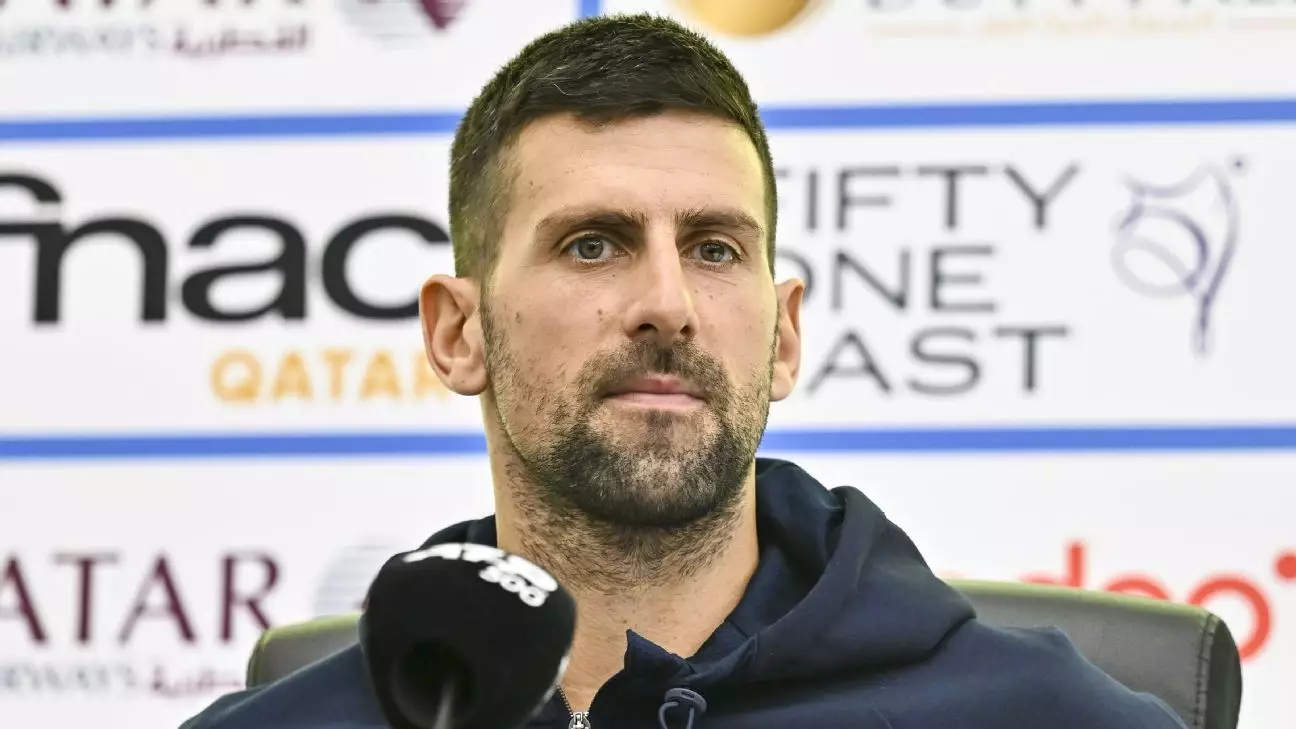In recent months, the integrity of tennis has come under the microscope, particularly regarding its anti-doping regulations. Amid rising frustrations from players, Novak Djokovic, a towering figure in tennis, voiced serious concerns over the credibility of the World Anti-Doping Agency (WADA) and the International Tennis Integrity Agency (ITIA). His remarks were prompted by a controversial three-month ban imposed on rising star Jannik Sinner, which many players perceive as evidence of inconsistency and favoritism favoring elite athletes. The recent events have sparked a fiery debate not only within the locker room but also among tennis fans and sports analysts worldwide.
Djokovic’s comments highlight a significant breach of trust between players and the governing bodies responsible for upholding the sport’s integrity. His assertion that “the system and structure obviously doesn’t work” reflects a sentiment shared by many who feel that the current measures are inadequate and arbitrary. The ramifications of such a situation could be far-reaching, as a loss of confidence in anti-doping measures can undermine the very foundation on which fair competition stands.
Jannik Sinner’s situation serves as a focal point in this ongoing discussion. The 24-time Grand Slam champion Djokovic emphasized that the leniency shown in Sinner’s case has raised eyebrows and could contribute to a broader perception of disparities in how doping cases are managed. Sinner’s agreement with WADA allowed for an early return to play, thus avoiding any interruptions in his Grand Slam participation. The backlash was immediate; critics argue that other athletes in similar scenarios have faced harsher penalties, leading to claims of double standards.
In a sport where every match could pivot on the psychological edge gained from performance-enhancing drugs, such disparities not only tarnish individual reputations but also question the integrity of the sport itself. Players like Djokovic have expressed alarm over how the narrative of being “top-tier” might afford certain individuals advantages. The notion that access to better legal counsel could sway outcomes contradicts the principles of fairness that sports are built upon.
The discontent extends beyond Sinner. Previous cases such as Iga Swiatek’s one-month suspension for accidental contamination and Simona Halep’s drawn-out dispute—including a four-year ban reduced to nine months—highlight the confusing landscape athletes must navigate. Moreover, Tara Moore’s experience—an 18-month investigation leading to a suspension for testing positive due to contaminated meat—further illustrates the inefficiencies and inconsistencies in the system.
Djokovic’s call for reform underscores the urgent need for a comprehensive review of the policies surrounding drug testing and penalties in tennis. As the sport grapples with preserving its reputation, there is a growing consensus among players that alterations are necessary to restore confidence. Consistency and fairness must become paramount if governing bodies want to mend the frayed trust caused by these recent controversies.
Moving forward, the challenges that the anti-doping authorities face are formidable yet crucial for the future of tennis. There is a pressing need for the establishment of clear, transparent guidelines that apply uniformly to all players, regardless of their standing within the sport. Moreover, an inclusive dialogue among stakeholders—including players, governing bodies, and legal experts—must be initiated to create a more equitable environment.
Ultimately, Djokovic’s insights serve as a rallying cry for change—not just for the players directly affected by doping allegations but for the integrity of tennis as a whole. By emphasizing the importance of fairness, he and other prominent players can move the conversation beyond mere complaints to actionable solutions. The question now remains: will the governing bodies of tennis heed these calls for reform or continue down a path that jeopardizes the sport’s integrity? Only time—and the willingness to adapt—will tell.


Leave a Reply